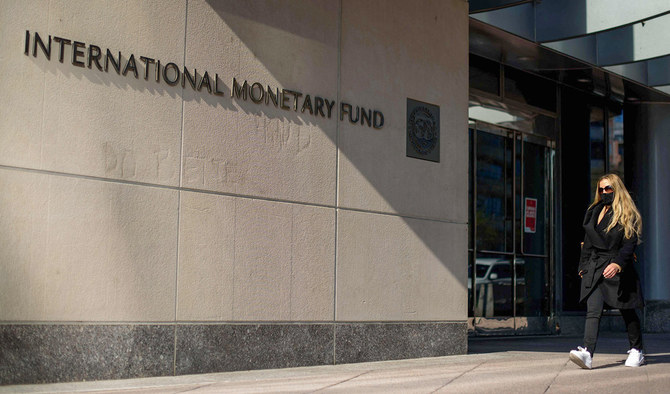KARACHI: The International Monetary Fund (IMF) on Tuesday said it was in discussion with the Pakistani authorities, aiming to "quickly" reach an agreement for the disbursement of around $1.1 billion as part of a bailout program.
Islamabad had been waiting since Sunday for the IMF response after making changes to the country's federal budget for the next fiscal year in line with the fund's expectations.
“The IMF team continues discussions with Pakistani authorities with the aim of quickly reaching an agreement on financial support from the IMF,” Nathan Porter, the IMF mission chief to Pakistan, said in statement to Arab News.
Porter acknowledged the South Asian country had lately taken "decisive measures," including the passage of a budget by the parliament that broadens the tax base, to meet the IMF conditions.
“Over the past few days, the Pakistani authorities have taken decisive measures to bring policies more in line with the economic reform program supported by the International Monetary Fund,” he said.
The development came hours after Pakistan Prime Minister Shehbaz Sharif said his government was hopeful the IMF would make a decision on the revival of Pakistan's $6.5 billion bailout program, stalled since November, in a day or two. The program expires on June 30.
On Tuesday, Sharif also held a telephonic conversation with IMF Managing Director Kristalina Georgieva, following three meetings between them on the sidelines of New Global Financial Pact summit held in Paris.
On Sunday, Pakistan’s parliament approved the 2023-24 budget which was revised to meet IMF conditions in a last-ditch effort to secure the release of more bailout funds, a day after Finance Minister Ishaq Dar introduced new taxes and expenditure cuts.
The IMF in mid-June expressed dissatisfaction with the country’s initial budget, saying it was a missed opportunity to broaden the tax base in a more progressive way.
With currency reserves barely enough to cover one month’s imports, Pakistan is facing an acute balance of payment crisis, which analysts fear could spiral into a debt default if the IMF funds do not come through.
In the changed budget, Dar revised the revenue collection target to Rs9.415 trillion ($33 billion) and put total spending at Rs14.480 trillion ($51 billion), increasing the petroleum levy from Rs50 to Rs60 per liter.
To boost revenue generation, authorities took Rs215 billion ($752 million) additional tax measures, cut Rs85 billion expenditures, hiked allocations under the social safety Benazir Income Support Program (BISP) by Rs16 billion, and withdrew the amnesty on foreign exchange inflows.
Pakistan’s central bank on Monday also jacked up policy rate by 1% to 22% in an emergency meeting.
















